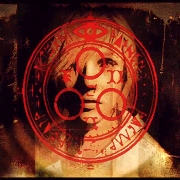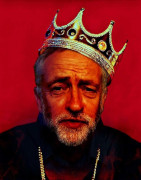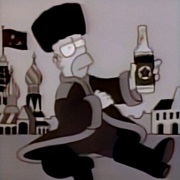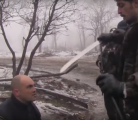|
anyone got any recommendations on stuff about the spanish civil war?
|
|
|
|

|
| # ? Apr 25, 2024 20:41 |
|
Spain in our Hearts is pretty good but the focal point is American volunteers like the Lincoln Brigade.
|
|
|
|
fridge corn posted:anyone got any recommendations on stuff about the spanish civil war? Pretty much anything by Paul Preston.
|
|
|
|
Does anyone have good recommendations for books on The Troubles/the Northern Ireland Conflict? I don't know much about the period, but I'd like to know more, so my preference is for broad rather than deep.
|
|
|
Arcsech posted:Does anyone have good recommendations for books on The Troubles/the Northern Ireland Conflict? david mckittrick's Making Sense of the Troubles then Ed Moloney's Voices from the Grave for a really incredible piece of oral history from two men on opposing sides. moloney's secret history of the IRA is also top notch
|
|
|
|
|
Killing Rage by Eamon Collins, he was an IRA bigshot who turned over a leaf later in life and wrote a remarkable book.
|
|
|
|
|
Cervixalot posted:Thanks again for the vote of confidence on Nixonland a few pages back. It’s fantastic. read nixonland first. it explains a ton how nixon took a ton from Reagan and the southern strategy and stuff.
|
|
|
|
fridge corn posted:anyone got any recommendations on stuff about the spanish civil war? George Orwell's Homage to Catalonia.
|
|
|
|
Dapper_Swindler posted:read nixonland first. it explains a ton how nixon took a ton from Reagan and the southern strategy and stuff. And read Before the Storm first. It talks about Goldwater and the birth of the conservative movement.
|
|
|
|
Can anyone recommend a good history of the Templars and/or the other great military orders? It occurred to me I don't know all that much about them.
|
|
|
|
|
Foucault's pendulum.
|
|
|
Ferrosol posted:Can anyone recommend a good history of the Templars and/or the other great military orders? It occurred to me I don't know all that much about them. Dan Jones, The Templars
|
|
|
|
|
I haven't checked this thread in a while because apparently you're all wonderful people who never use the report button Any thoughts on this title? https://www.amazon.com/October-Russian-Revolution-China-Mi%C3%A9ville/dp/1784782777 It's a topic I'd like to read more about but, well, Mieville is not exactly a historian
|
|
|
|
|
i really wouldn't trust him to write any history whatsoever especially on something that is pretty well documented and written about you could honestly find a better account w/ no trouble
|
|
|
|
jagstag posted:i really wouldn't trust him to write (USER WAS PUT ON PROBATION FOR THIS POST)
|
|
|
|
Hieronymous Alloy posted:I haven't checked this thread in a while because apparently you're all wonderful people who never use the report button Do you want a book recommendation? You can either go with "A People's Tragedy" by Figes or the older, more conservative take by Richard Pipes.
|
|
|
|
Hieronymous Alloy posted:I haven't checked this thread in a while because apparently you're all wonderful people who never use the report button I haven't read it and I don't know much about Mieville. Someone who has read it and knows much more than me wrote this in a review of a bunch of the centenary books including that one: Sheila Fitzpatrick in the London Review of Books posted:So it’s not in my nature to come out as a revolutionary enthusiast. But shouldn’t someone do it? That's the general impression I've got from other coverage of it in the field: it's well-written and Mieville did his homework, but it's still obviously written by a non-specialist and is much more sympathetic to the revolutionary cause than you'll find from pretty much any professional historians these days. As a result, if you're more interested in the history itself there are other centenary books that I would recommend above it, from people who have spent their careers thinking about this stuff. SA Smith's Russia in Revolution: An Empire in Crisis and Mark Steinberg's The Russian Revolution come to mind immediately, but there was a huge wave of centenary books so there's a lot more out there.
|
|
|
|
Minenfeld! posted:Do you want a book recommendation? You can either go with "A People's Tragedy" by Figes or the older, more conservative take by Richard Pipes. Don't read Pipes, it's polemical garbage.
|
|
|
|
The Mievelle book is good and especially excellent at following the political maneuverings of the Bolsheviks and all the parties on the Left, but it's also not at all a dry traditional history. Very good writing, but he sometimes overextends himself and gets too flowery. I've also read A People's Tragedy, it's an extremely good book, though I think his take on the Revolution is probably more conservative than I remember it.
|
|
|
|
vyelkin posted:Don't read Pipes, it's polemical garbage. Yeah, I'm not a fan. But it's not an awful book assuming you go in understanding the bias.
|
|
|
|
vyelkin posted:Don't read Pipes, it's polemical garbage. Can you go into more detail on this? I had to read Pipes in college way back when, and I don't remember the professor who assigned it being particularly anti-revolutionary. I don't remember much of the class at all, really.
|
|
|
|
dublish posted:Can you go into more detail on this? I had to read Pipes in college way back when, and I don't remember the professor who assigned it being particularly anti-revolutionary. I don't remember much of the class at all, really. I can't do it justice but better scholars than me have written full-fledged reviews of it. One of the best academics I know wrote a review of it when it came out that includes the following passages: quote:Political perspectives aside, the effectiveness of Pipes's effort to portray the Russian Revolution as a historical crime perpetrated on a guileless Russian people is seriously compromised by numerous errors and methodological flaws. Indeed, this work might serve as a casebook of bad historical practice. Sloppy editing has produced many errors of simple fact and Russian terminology. Other errors are more serious, because they consistently reinforce Pipes's arguments about the irrationality of revolutionary actors and the conspiratorial genesis of the revolution. Space permits the citation of only a few examples. Pipes states that the Bolshevik party created the Moscow Soviet in 1905 (p. 49). It did not. He contends that moderate socialists "save for a fringe minority" favored war to victory (p. 400). They did not; they favored a defensive war only. Pipes mentions at least twice (with documentation that does not support this claim) that the "anarchist" sailors of the Kronstadt naval fortress lynched their officers because they had German surnames (pp. 304, 328); he assumes the sailors associated them with the enemy. Anarchism was indeed popular on Kronstadt, known as the "sailors' Sakhalin" because of the near-penal conditions under which they served, but one would hardly expect them therefore to be patriots. As careful studies by Israel Getzler, Evan Mawdsley, and Norman Saul (all uncited by Pipes) have shown, the lynchings on Kronstadt and elsewhere were retaliation for years of abuse, and most victims did not even have German surnames. It's bad history not just because Pipes has a particular political axe to grind and lets you know it, but because he's so committed to his personal ideological stance on the revolution as history's greatest crime that he ignores all evidence other historians have discovered, and all arguments they have made, that contradict his stance, partly because of his own personal and professional issues with the historians in question. And then because he has a pre-determined point he wants to make, and he ignores all the evidence historians have found that might contradict that point, he bases really key aspects of his argument on a paper-thin source base. The result is such a one-sided, biased, and just plain inaccurate and incomplete history that it's honestly not worth reading even to get the other side of the story compared to the more sympathetic younger generations of historians who contradicted Pipes' views. You'd get about as accurate an impression of the Russian Revolution by watching a Fox News segment about it.
|
|
|
|
Richard Pipes son somehow ended up being even worse than he was.
|
|
|
|
vyelkin posted:I can't do it justice but better scholars than me have written full-fledged reviews of it. One of the best academics I know wrote a review of it when it came out that includes the following passages: Care to link to the rest of this? Or at least tell us who wrote it?
|
|
|
|
Shimrra Jamaane posted:Richard Pipes son somehow ended up being even worse than he was. how does that even work? like how is he worse. also how bad is Goldhagan when it comes to history books. i remeber my professors loving hating his guts.
|
|
|
|
cloudchamber posted:Care to link to the rest of this? Or at least tell us who wrote it? Sure, it's Diane Koenker in the Journal of Modern History https://www.jstor.org/stable/2124477
|
|
|
|
Dapper_Swindler posted:also how bad is Goldhagan when it comes to history books. i remeber my professors loving hating his guts. I will probably regret making this post, but here goes. And keep in mind that this is an oversimplification based on what I learned in courses taken years ago... It is my understanding that Goldhagen used some VERY sloppy methodology to make the case that the Germans were uniquely evil, and that violent anti-Semitism was the fundamental cornerstone of their very lives. He wrote his book - Hitler's Willing Executioners - in response to Browning's Ordinary Men. Browning made the case that - like on the cover - ordinary people became swept up in the hate and evil of the Holocaust, either through excusing it, looking the other way, or participating in it because they were fooled or forced to do so. Goldhagen thought this didn't go far enough or condemn the Germans as harshly as they deserved. But he really overstates this - you get the impression from reading the book that all Germans were just complete and total monsters, born evil, all-evil, all the time. And the problem is that it's really hard to say, "that's going a bit far" without sounding like you're excusing the Nazis or saying, "actually, not ALL Germans..."
|
|
|
|
Cessna posted:I will probably regret making this post, but here goes. And keep in mind that this is an oversimplification based on what I learned in courses taken years ago... yeah pretty much. i took a bunch of nazi/holocaust classes in college(just graduated) and most of the teachers called him a simplistic moron(in the best times, i heard one call him a "loving idiot") i am kinda of synthesis type between the Functionalism versus intentionalism camps. also browning's book Ordinary Men was more about a resever police unit that basicaly did a ton of shootings and how most of them wernt even die hard nazis and just did it because group mentality and because "dirty job" stuff. https://en.wikipedia.org/wiki/Christopher_Browning#Ordinary_Men also reading wikipeidia, Goldhagan seems like a giant dumbass in general. like he isn't David Barton bad but he seems like he really loves simplistic bullshit. Dapper_Swindler fucked around with this message at 21:14 on Sep 11, 2018 |
|
|
|
Dapper_Swindler posted:yeah pretty much. i took a bunch of nazi/holocaust classes in college(just graduated) and most of the teachers called him a simplistic moron(in the best times, i heard one call him a "loving idiot") i am kinda of synthesis type between the Functionalism versus intentionalism camps. also browning's book Ordinary Men was more about a resever police unit that basicaly did a ton of shootings and how most of them wernt even die hard nazis and just did it because group mentality and because "dirty job" stuff. You're spot on--but I'm biased because I fall into the synthesis camp as well. Having read both books, I recommend Browning's. The new edition of the book also has an afterword that addresses Goldhagen.
|
|
|
|
Minenfeld! posted:You're spot on--but I'm biased because I fall into the synthesis camp as well. Having read both books, I recommend Browning's. Same here.
|
|
|
|
Dapper_Swindler posted:how does that even work? like how is he worse. Let’s take a look at his Wikipedia page! quote:Pipes has long expressed alarm about what he believes to be the dangers of "radical" or "militant Islam" to the Western world. In 1985, he wrote in Middle East Insight that "[t]he scope of the radical fundamentalist's ambition poses novel problems; and the intensity of his onslaught against the United States makes solutions urgent."[21] In the fall 1995 issue of National Interest, he wrote: "Unnoticed by most Westerners, war has been unilaterally declared on Europe and the United States."[22] Shimrra Jamaane fucked around with this message at 22:16 on Sep 11, 2018 |
|
|
|
Minenfeld! posted:You're spot on--but I'm biased because I fall into the synthesis camp as well. Having read both books, I recommend Browning's. The new edition of the book also has an afterword that addresses Goldhagen. Cessna posted:Same here. i feel like alot of people. like i get why goldhagan wants to believe his stuff, because it makes history much easier/black&white. you have to research history books before you buy them which is kinda sad but thats the way it is. i have gotten burned a few times, mostly on "click baity" topics/titles. making the story sound much better/interesting/etc then it is.
|
|
|
|
Shimrra Jamaane posted:Let’s take a look at his Wikipedia page! oh. just not really surprised. like i can atleast understand the senior pipes because the russian revolution did go to poo poo but holy gently caress whats up with these history types and being weird xenophobes. if you learn anything, its that everyone/culture/country/etc has done awful loving poo poo and great amazing good stuff.
|
|
|
|
Shimrra Jamaane posted:Let’s take a look at his Wikipedia page! You didn't even quote the best part quote:Allegations against Barack Obama
|
|
|
|
What's the best book on the French Revolution for a reader whose knowledge of the events is cursory? I've heard Citizens by Simon Schama is good but I'm looking for something a little more concise than 950 pages...
|
|
|
|
What are some good books about the history of the various East India Companies?
|
|
|
|
Are there any particularly good books on Lakshmibai? I read about her in India: A History and wanted to learn more!
|
|
|
|
Guy A. Person posted:Are there any particularly good books on Lakshmibai? I read about her in India: A History and wanted to learn more!
|
|
|
|
Is there a good or standard biography of the Emperor Justinian? I normally don't do biographies, but I'm interested.
|
|
|
|

|
| # ? Apr 25, 2024 20:41 |
|
I’d like a big juicy book on the French Revolution if anyone has a recommendation. Realised I know pretty much nothing about it.
|
|
|

































